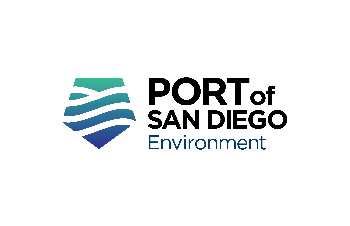
[FILLED] Climate Resiliency Planning
Host: San Diego Unified Port District
Region: Southern California
Openings: 1
Project Focus: Climate Adaptation, Ecosystem / Habitat Conservation, Energy Efficiency, Renewable Energy, Transportation / Mobility, Urban Planning, Waste Management, Water Management
Skills Needed: Project Management, Research, Data Analysis, Technical Writing, Critical Thinking, Teamwork
Service Needs & Plans
The Port is in the midst of several long range planning efforts related to climate resiliency, including an update to its Climate Action Plan (CAP) and preparing for and adapting to sea level rise. There are needs within these efforts that a fellow could support or lead to contribute to the overall objectives, including research, meeting facilitation and outreach, preparation of frameworks, and data management and analysis. Both of these efforts both address environmental concerns, as they are identifying strategies for the Port to reduce greenhouse gas (GHG) emissions or exploring the opportunity for nature-based shoreline solutions, which could enhance the San Diego Bay environment. These efforts are related to environmental justice issues for surrounding communities, such as air quality, public health, and public access.
Project DescriptionClimate Action Plan:
There are several focus areas within the District’s update to its Climate Action Plan (CAP) that a Fellow would support, including water conservation and waste diversion programs, active transportation, electrification and decarbonization, and internal Port sustainability. A Fellow’s role would include: working with existing programs (water conservation and waste diversion) or develop new programs (active transportation, electrification and decarbonization, and internal Port sustainability) to develop greenhouse gas (GHG) accounting protocols; research and manage database of regional and relevant CAP strategies related to the focus areas; advance internal sustainability goals by creating programming for Port staff; and facilitating or participating in tenant outreach related to electrification and decarbonization goals.
Coastal Resiliency:
A Fellow would also support the next steps in the Port’s ongoing efforts related to coastal resiliency and adaptation. Building upon recent efforts, a Fellow would research how nature-based solutions around California or around the world have been entitled and permitted and prepare a framework for how the Port can continue to encourage these types of solutions and review them as they are proposed. In addition, the Port is exploring how to incorporate social vulnerability into coastal resiliency planning, and a Fellow would research how future adaptation could consider the social aspects into strategy design, process, or implementation. This would involve building off previous efforts by researching grant opportunities, looking into other adaptation projects that incorporate social vulnerability, and leading or participating in internal and external coordination meetings.
Green Marine and Internal Sustainability:
In addition to the two primary projects above, there is also opportunity for a Fellow to support the Port’s upcoming Green Marine certification verification process and the development of an internal sustainability program, as well as other tasks as they arise based on the Port’s needs. These would involve: specific research tasks (related to climate resiliency and the environment, such as for Green Marine verification), preparation of communication or education materials related to sustainability and climate planning initiatives, internal and external coordination to advance climate and sustainability objectives, and review of planning documents or materials as they relate to climate resiliency, coastal adaptation, Green Marine, or sustainability.
A successful candidate for these fellowship positions must be able to work independently but also function as part of a multi-disciplinary team within the Planning and Environment Division and other Port departments such as Government & Civic Relations, Marketing & Communications, Maritime, Real Estate, Maritime, and Engineering, as well as counterparts in other agencies and industries. We are looking for someone with collaborative communication skills; GHG emission accounting; knowledge of climate action plan strategies and measures to reduce GHGs; research skills; report preparation. The professional development component of the fellowship has a strong emphasis on communication, inter-personal skills, interaction with policy and regulatory information.
Organization & Community HighlightsThe Port of San Diego was created by the State Legislature to manage San Diego Bay and surrounding waterfront land through a regional governance approach in 1962. The Port of San Diego is the fourth largest of the 11 deep water ports in California, and is bordered by five member cities: Chula Vista, Coronado, Imperial Beach, National City, and San Diego. The Port oversees two marine cargo terminals, two cruise ship terminals, 22 public parks, the Harbor Police Department, and the leases of over 200 tenants and over 500 sub tenant businesses around San Diego Bay, while balancing navigation, commerce, fisheries, recreation. Additionally, the Port is an economic engine, and environmental steward of San Diego Bay and the surrounding tidelands, and a provider of community services and public safety.
The selected participants will support programs and initiatives through the Port’s Planning and Environment Division. Through integrated planning, sustainable development of Port of San Diego operations, and protection and enhancement of natural resources that celebrate tidelands and waterfront life, the Planning and Environment Division includes four distinct teams and departments:
1.Aquaculture and Blue Technology
2.Environmental Conservation
3.Environmental Protection
4.Planning
Hybrid
